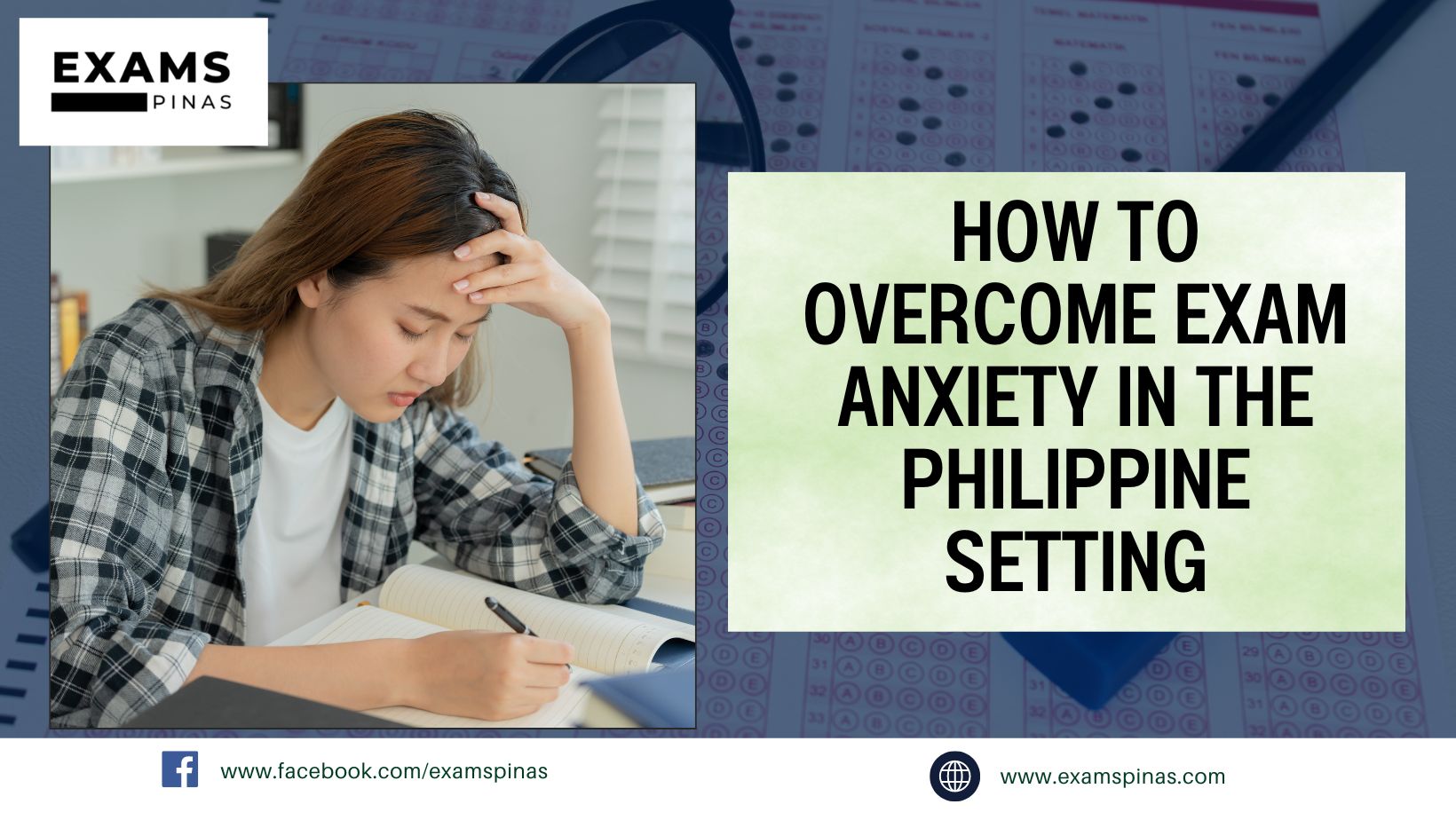Exams are an inevitable part of academic life, but for many students in the Philippines, they can also be a source of stress and anxiety. The pressure to perform well, coupled with the fear of failure, can take a toll on students’ mental and emotional well-being. In this guide, we’ll explore effective strategies to help you overcome exam anxiety and perform at your best in the Philippine educational landscape.
Understanding Exam Anxiety
Exam anxiety is a common phenomenon characterized by feelings of apprehension, nervousness, and unease before or during exams. It can manifest in physical symptoms such as sweating, trembling, rapid heartbeat, and gastrointestinal discomfort. Psychological symptoms may include fear of failure, negative self-talk, and racing thoughts.
Factors Contributing to Exam Anxiety
Several factors can contribute to exam anxiety, including:
- High Expectations: Pressure to excel academically and meet societal expectations.
- Perceived Consequences: Fear of disappointing oneself, family, teachers, or peers.
- Poor Preparation: Inadequate study habits or lack of confidence in one’s abilities.
- Test Environment: Unfamiliar or intimidating testing conditions.
Strategies to Overcome Exam Anxiety
1. Effective Time Management
- Create a Study Schedule: Break down your study material into manageable chunks and allocate specific time slots for each subject or topic.
- Prioritize Tasks: Identify high-priority tasks and allocate more time to areas where you need the most improvement.
- Take Regular Breaks: Incorporate short breaks into your study routine to prevent burnout and maintain focus.
2. Develop Healthy Coping Mechanisms
- Practice Relaxation Techniques: Incorporate relaxation techniques such as deep breathing, meditation, or progressive muscle relaxation to calm your mind and alleviate stress.
- Stay Active: Engage in regular physical activity to reduce tension and boost mood-enhancing endorphins.
- Maintain a Balanced Lifestyle: Ensure adequate sleep, nutrition, and hydration to support overall well-being.
3. Cultivate Positive Thinking
- Challenge Negative Thoughts: Identify and challenge negative self-talk and irrational beliefs that contribute to anxiety.
- Practice Self-Compassion: Be kind and supportive to yourself, especially in moments of difficulty or setbacks.
- Focus on Progress, Not Perfection: Celebrate small victories and milestones along your academic journey, recognizing that growth takes time and effort.
4. Utilize Effective Study Strategies
- Active Learning Techniques: Engage in active learning strategies such as summarizing, concept mapping, and self-testing to reinforce learning and retention.
- Seek Support: Reach out to teachers, classmates, or academic support services for assistance with challenging concepts or topics.
- Practice Mindfulness: Cultivate mindfulness techniques to stay present and focused during study sessions and exams.
Exam anxiety is a common experience, but it doesn’t have to dictate your academic performance or well-being. By implementing these strategies and adopting a proactive approach to managing stress, you can overcome exam anxiety and approach exams with confidence and resilience. Remember, success is not measured solely by exam scores, but by your growth, perseverance, and ability to overcome challenges in the pursuit of your academic goals.
Let’s strive for academic excellence while prioritizing our mental and emotional health in the Philippine educational landscape.

